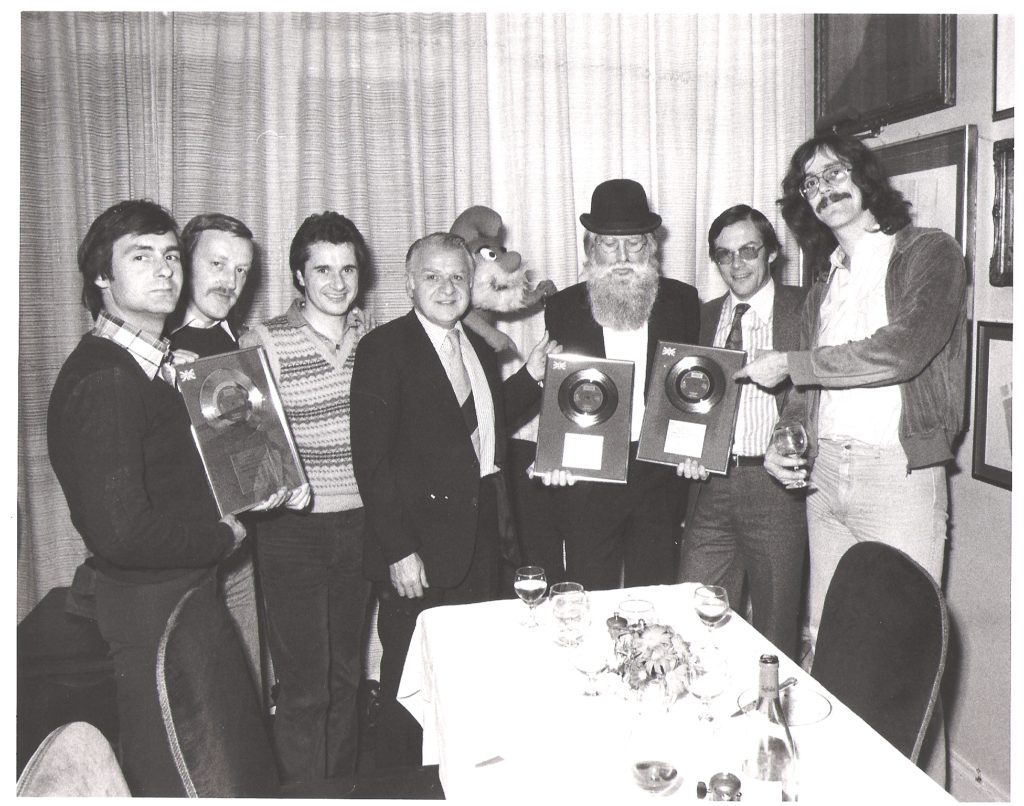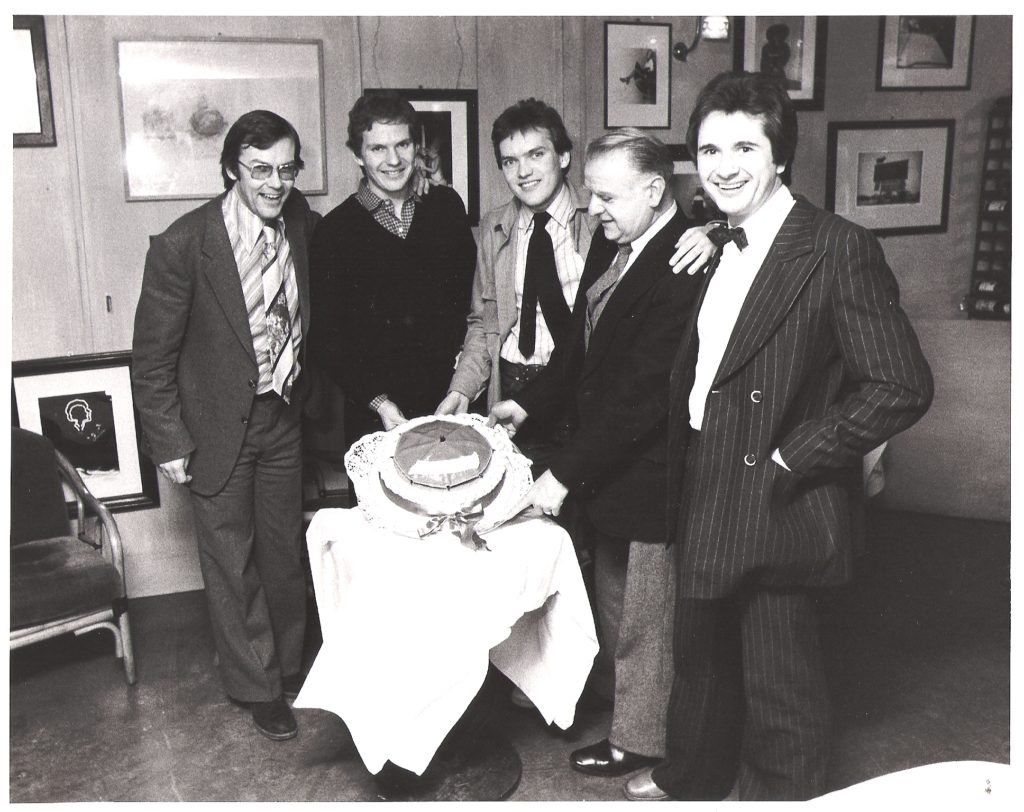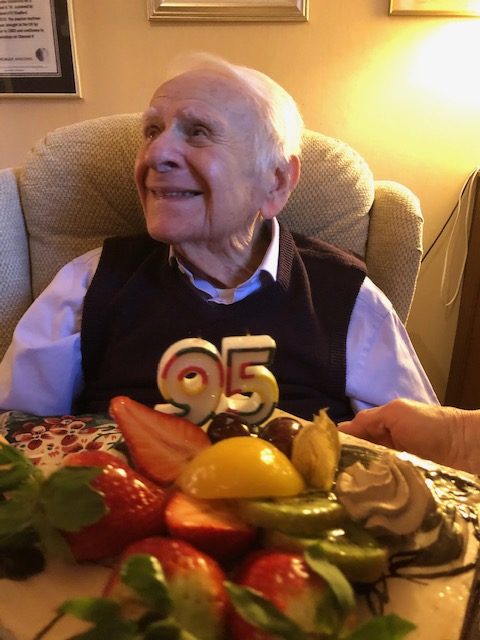FOR the first time since the pandemic descended upon us, I went to a funeral this month.
But it was not the familiar Requiem Mass followed by drinks, where the mourners could socialise with friends and relatives to celebrate the life of someone dear.
This was a first for me as it was a Jewish funeral, held with limited numbers to comply with the Covid restrictions and was for my dear friend and ex-colleague, the remarkable Marcel Stellman.
I had heard on the morning of May 3 the sad news that he had died aged 96 and later that day I felt honoured and privileged to be invited at the request of the family to attend his funeral, which was being held the next day, something of a surprise to me, being so quick.
 Marcel Stellman was a gifted lyricist who wrote many hit songs
Marcel Stellman was a gifted lyricist who wrote many hit songsMarcel Stellman, born in Belgium on February 15, 1925 was always lucky.
He was just in his twenties when he was one of only 1500 Jews who were alive when the German SS guards fled Drancy a Nazi transit camp in France, as the Allies approached to liberate it in August 1944.
Prior to that some 67,000 French, Polish, and German Jews, including 6,000 children, were crammed into goods trains and sent from there to the extermination camps.
As the war ended Marcel managed to get to London to join his grandfather in the diamond business, but as a talented musician that was not his long-term plan.
He first got work with BBC Radio in Glasgow and then from the 1950s to 1989 he was Head of International at Decca Records, where he worked with so many famous artistes, from the Rolling Stones to Tom Jones and Dame Vera Lynn.
He was also a gifted lyricist and songwriter, who had written hundreds of hit songs, such as Dance On for Kathy Kirby or Tulips from Amsterdam for Max Bygraves, which he wrote under the pseudonym Gene Martyn as he thought Stellman sounded “too Jewish” at that time.
From his cosmopolitan background he spoke several languages fluently, so was often able to translate hits from Europe and then produce the English versions for singers like Charles Azanvour, the French star Gilbert Becaud and many others.
The 1974 International hit A Little Love and Understanding for Becaud being a good example.
It was whilst I was working as Head of Promotion for Decca in the 1970s alongside Marcel that I really got to know and became friends with this irrepressible character, and we had lots of fun working together on a whole range of record projects.
He introduced me to legends like Stephan Grappelli and the Goons, as he had originally produced the famous Ying Tang Song, and later we worked with the huge international rock band the Moody Blues.
Because Marcel had a long association with Gilbert Becaud, we brought him in to appear on the Royal Command Show and we also worked together with John Miles when his song Music was a big hit across Europe.
Perhaps most amusingly and as an example of his nose for a hit, Marcel had come across a children’s TV show from Holland whilst on his travels, bringing an early format video back, which I was tasked with viewing to assess the potential for the UK.
After a little encouragement from my two-year-old daughter Cara, who loved it, I thought Marcel was on to something if the songs could be translated into English from the original Dutch.
When I suggested that Marcel took me to Amsterdam to meet the artiste and record company with the result that together we inflicted Vader Abraham and the Smurfs on an unsuspecting public.
 Marcel Stellman had a long and illustrious career in the entertainment industry
Marcel Stellman had a long and illustrious career in the entertainment industryDecca sold millions of records and had the biggest No2 single in the history of the charts from his translations of those catchy children’s songs and his canny ability to spot a left field opportunity.
Marcel Stellman always had knack for being able to see such opportunities from unusual sources, having started his career with the BBC in Glasgow in the late forties, where he went on to work on the Pinky and Perky TV shows, picking the songs they would sing.
Every year for over 30 years Marcel would go to MIDEM the International Music Festival in Cannes to meet people from record labels from all over the world.
One day he had been on his feet at the Palais De Festival all morning then had enjoyed a pleasant lunch on the Croisette but knowing he had a big posh dinner later that night with licensees he decided to sneak back to the Majestic Hotel for a little secret siesta.
He told me that whilst dozing on the bed he caught part of a French TV show called Des Chiffres et Des Lettres and was fascinated.
He came back to London made a few calls to his numerous contacts in Paris and did a deal.
Having acquired the rights to the show he changed the name and then placed it with Yorkshire TV.
The quiz show is known by us all as Countdown - which was the first programme to be aired on Channel 4 on November 2, 1982, and since then over 80 series have been broadcast.
Marcel, with a trace of a Belgian accent (‘Ello Matey”) that made him sound a little like David Suchet’s Hercule Poirot, was a small, dapper, suave bundle of charm and energy with a great sense of humour and a contact book that included so many legendary names from the record and film business in the post war years.
It was full of the names of stars and the best restaurants around the world with the names of the Maitre D so he could always get a table
He was married and devoted to his wife Jeanie for over 70 years who now survives him.
Their two children had died in infancy from a rare genetic condition but both he and Jeanie kept the darkness of that tragic loss private and were always kind and generous to countless friends, colleagues and relatives whose lives were touched by Marcel’s busy, glamorous and creative life.
 Marcel Stellman celebrating his 95th birthday
Marcel Stellman celebrating his 95th birthdayI last saw him to celebrate his 95th birthday in February 2020, but because of Covid I was not able to see him since.
Then, even though his memory was going a bit, he still had the same twinkle in his eye and every time I visited him over recent years, he was always proud to show me the latest of his numerous awards that plastered the walls of his study.
He was especially proud when on March 26, 2010; when Queen Elizabeth II congratulated Marcel and Countdown for amassing 5,000 episodes.
In 2014, the programme received a Guinness World Record at the end of its 6,000th show for the longest-running television programme of its kind.
Marcel Leopold Stellman was one of those old school maverick record executive characters that always followed his instincts with flair and enthusiasm, a breed, which the corporate industry of today sadly lacks.
I will miss him as will so many others who were privileged to have known him and loved hearing his incredible stories.
Nobody I have ever encountered could name drop like Marcel.
It was never ever a boast though, just him recounting with great humour and humanity another incredible episode in his colourful and varied life.
Even if you did not know him personally or had never even heard of him without doubt his contributions to popular culture with songs and TV shows touched all of our lives.
As Carol Voderman, who co-hosted the first 26 years of Countdown, affectionately says his was a “great life well lived”.
I don’t have a Hebrew translation but the Irish saying Ni bheidh a leitheid aris ann, meaning ‘there won’t be his like again’, would surely apply to our much loved and missed Marcel Stellman.
Marcel Leopold Stellman: Feb 15, 1925 – May 2, 2021

